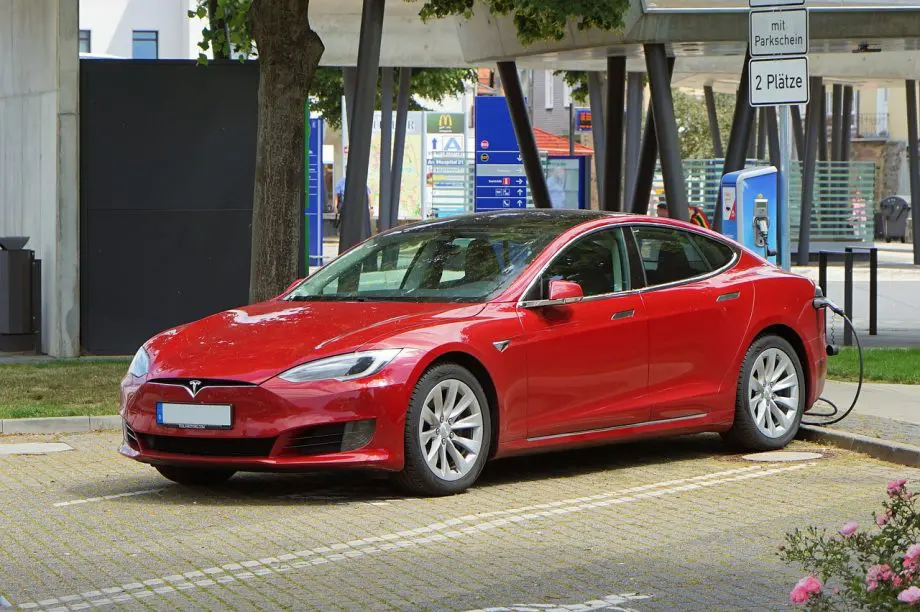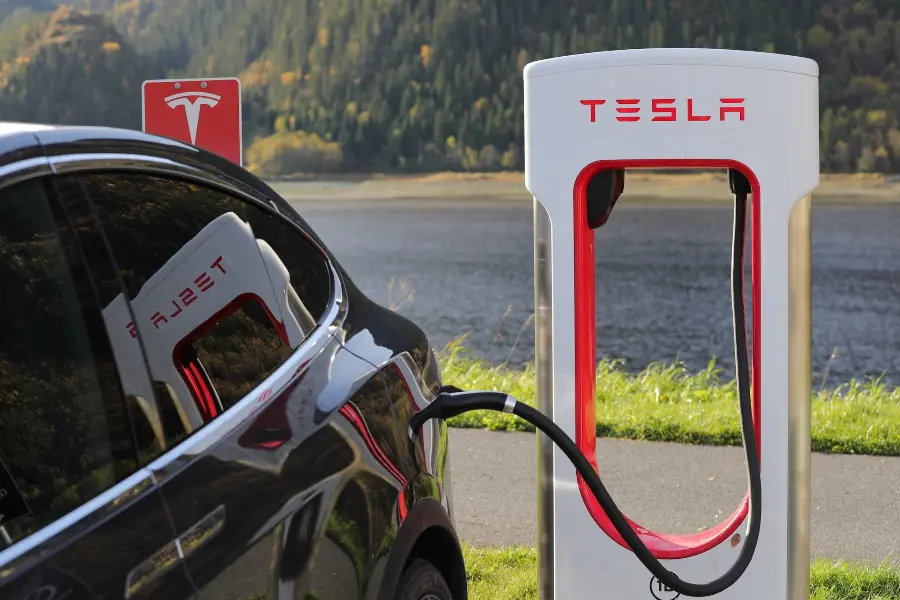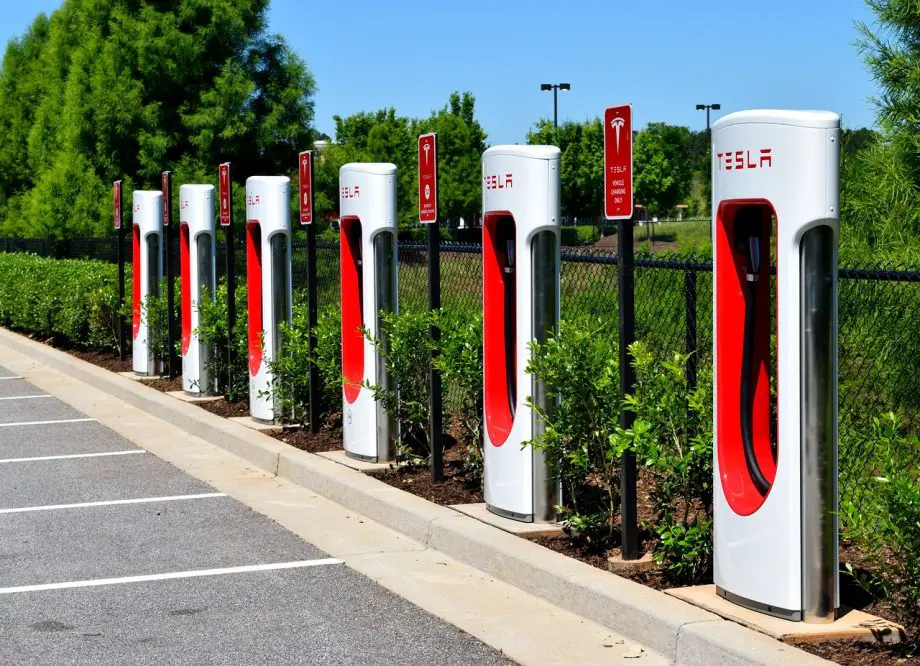
How does temperature impact EV range? Dive into the science behind EV range, the effects of weather, and tips to maximize your EV’s performance.
Ever hopped into your electric vehicle on a chilly morning and wondered, ‘Does temperature impact EV range?’ You’re not alone.
It’s a question on the minds of many EV enthusiasts. As we journey into the world of electric vehicles, we’ll explore how the mercury level can indeed play a role in your EV’s performance.
So buckle up, and let’s dive into the fascinating interplay between temperature and your EV’s range!
Does Temperature Impact EV Range?
Welcome to our deep dive into a hot topic in the world of electric vehicles: How does temperature impact EV range?
If you’ve ever found yourself pondering this question, you’re in the right place. In this post, we’ll explore everything from the basics of EV range, to the intriguing ways both cold and hot temperatures can affect it.
We’ll also delve into real-world examples, share tips on mitigating temperature effects, and answer some frequently asked questions.
So, whether you’re an EV owner or just curious about the technology, stick around as we unravel this electrifying mystery!
Brief Overview of Electric Vehicles (EVs)
Electric vehicles, or EVs as they’re commonly known, are more than just a trend and they’re the future of transportation.
These sleek machines run on electricity, a stark contrast to the gas-guzzling vehicles we’ve been accustomed to for decades.
But what makes them so special? Well, aside from being incredibly cool, they’re also kinder to our planet.
With zero tailpipe emissions, EVs are a breath of fresh air in our fight against climate change.
Plus, they offer a smooth, quiet ride that’s hard to beat. But like all things, they come with their own set of quirks and considerations, one of which brings us to our next point.
Importance of Understanding the Impact of Temperature on EV Range
Now, you might be wondering, Why should I care about the impact of temperature on EV range?
Well, if you’re an EV owner or considering becoming one, it’s pretty crucial.
The range of an EV refers to how far it can travel on a single charge. And just like your smartphone battery, the performance of an EV battery can be influenced by temperature.
Understanding this impact can help you get the most out of your EV, plan your journeys better, and even prolong the life of your battery.
So, as we delve deeper into this topic, remember: knowledge is power, especially when it comes to powering your EV!
Understanding Electric Vehicle Range

Ready to get charged up about electric vehicle range? In this section, we’re going to shed some light on what exactly we mean when we talk about ‘EV range.’
It’s a term that gets thrown around a lot in EV discussions, but what does it really mean?
And what factors can influence it? Whether you’re an EV veteran or a curious newcomer, understanding these concepts is key to getting the most out of your electric vehicle experience.
So, let’s plug in and get started!
Explanation of What EV Range Is
When we talk about ‘EV range,’ we’re referring to the distance an electric vehicle can travel on a single charge.
Think of it like the gas tank in a traditional car. If you fill up your tank, how far can you go before you need to stop at a gas station again?
In an EV, instead of gas, we’re dealing with electricity. The range is determined by how much power the battery can store and how efficiently the vehicle uses this power.
It’s a crucial factor for many potential EV owners, as it directly impacts how and where you can use your vehicle.
Factors That Influence EV Range
Now, what influences this range? It’s not just a simple matter of battery size. Several factors can impact how far you can go on a single charge.
Driving habits: Just like with traditional cars, aggressive driving can consume more energy, reducing your range.
Smooth, steady driving is the way to go for maximum efficiency.
Terrain: Hills can be a challenge. Going uphill requires more energy, while going downhill can actually regenerate some energy through a process called regenerative braking.
Weight: The heavier the vehicle (or the more cargo you’re carrying), the more energy it takes to move, which can reduce your range.
Speed: Higher speeds require more energy, which can decrease your range.
Weather: Yes, the weather! Extreme temperatures, both hot and cold, can impact your battery performance and thus your range.
But don’t worry, we’ll be diving into this topic in more detail in the next section.
Understanding these factors can help you maximize your EV range and plan your trips more effectively.
So, keep them in mind as you navigate the electrifying world of EVs!
The Impact of Temperature on EV Range
Ever noticed how your smartphone battery drains faster in extreme cold or heat?
Well, your electric vehicle can feel the weather changes too! In this section, we’re going to explore the fascinating, and sometimes surprising, impact of temperature on EV range.
We’ll look at how both Jack Frost and the summer sun can influence your EV’s performance.
Plus, we’ll share some real-world examples and studies that bring this topic to life.
So, grab your favorite weather-appropriate beverage, and let’s dive into the science of temperature and EV range!
How Cold Temperatures Affect EV Range
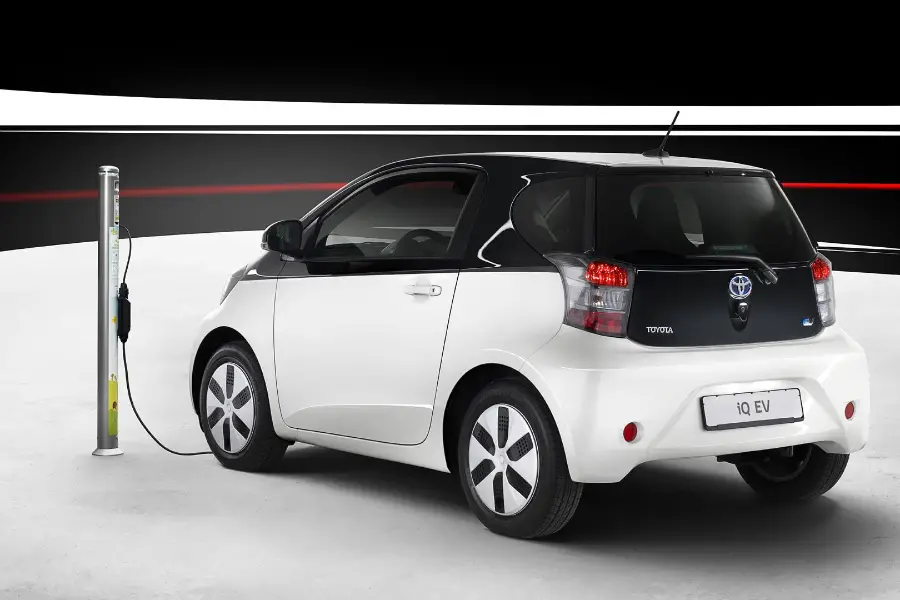
Increased Energy Use of Heating Systems
When the mercury drops, we naturally crank up the heat to stay cozy. The same goes for your EV.
To keep you comfortable during those chilly drives, your EV uses its heating system, which draws energy from the battery.
This increased energy use can lead to a reduction in your EV’s range. It’s a bit like leaving the lights on in every room of your house. Your electricity bill (or in this case, your battery charge) is going to take a hit.
Battery Performance in Cold Temperatures
But it’s not just about staying warm. Cold temperatures can also directly affect your EV’s battery performance.
Just like the battery in your smartphone or laptop, the battery in your EV doesn’t perform as well in cold conditions.
This is due to the chemical reactions inside the battery that generate electricity.
These reactions don’t occur as efficiently in cold temperatures, leading to reduced battery capacity and, consequently, reduced range.
How Hot Temperatures Affect EV Range
Use of Air Conditioning Systems
On the flip side, when the sun is blazing, we turn to our trusty air conditioning to keep cool.
And just like the heating system, your EV’s air conditioning system uses energy from the battery.
This extra energy use can lead to a decrease in your EV’s range.
So, while you’re enjoying a cool breeze inside your car, your battery is feeling the heat!
Battery Performance in Hot Temperatures
Hot temperatures can also have a direct impact on your EV’s battery performance.
While batteries can perform better in warm conditions than in cold, extreme heat can cause the battery to degrade faster, which can impact its overall capacity and lifespan.
This, in turn, can lead to a reduction in your EV’s range over time.
Real-World Examples and Studies
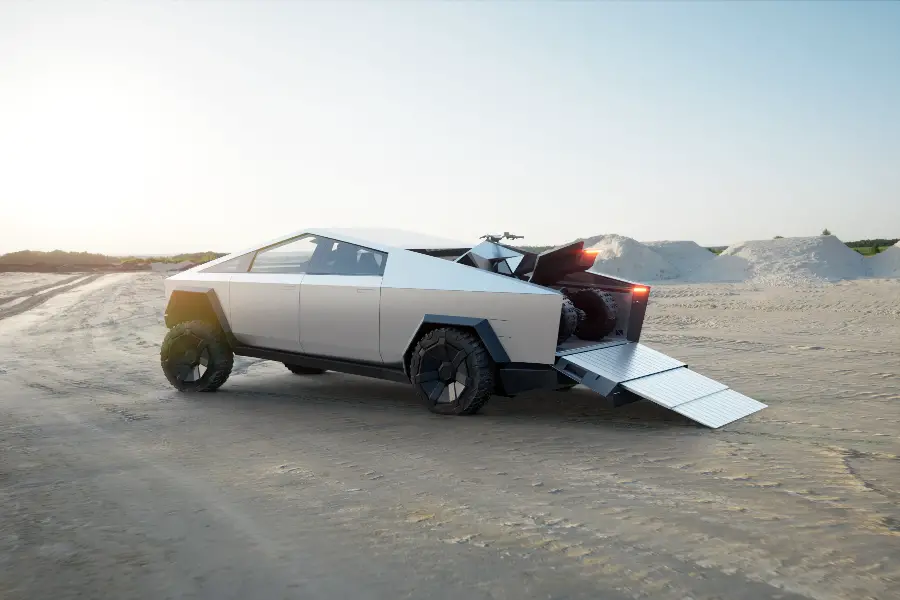
Now, this might all sound a bit theoretical, but real-world studies have shown these effects in action.
For instance, a study by the AAA found that at 20°F, EVs can lose up to 40% of their range when the heating system is in use.
On the other end of the spectrum, at 95°F, range loss can be as much as 17% when the air conditioning is running.
These findings highlight the significant impact temperature can have on EV range and the importance of planning your trips and managing your battery use accordingly.
Consumer Reports Case study
Consumer Reports conducted a comprehensive study to understand how temperature affects the range of electric vehicles.
They tested popular all-wheel-drive EVs, including the Ford Mustang Mach-E extended range, Hyundai Ioniq 5, Tesla Model Y Long Range, and Volkswagen ID.4 Pro S, in cold, mild, and warm weather conditions.
The study found that cold weather can significantly reduce the range of an EV.
When cruising at 70 mph, cold weather sapped about 25% of the range compared to the same conditions in mild weather.
Short trips in the cold with frequent stops and the need to reheat the cabin could sap up to 50% of the range.
Interestingly, the study also found that warm weather could actually increase the range of an EV.
Despite the use of air conditioning, a typical summer day of sunny, humid, mid-80-degree weather resulted in the longest range among the three tested conditions.
The study underscored the importance of understanding that EV range is not an absolute metric.
Factors such as weather, speed, traffic, cargo, passengers, and climate settings can all impact the range.
The findings provide key insights into the role weather plays in EV range, emphasizing the importance of being mindful of these factors when planning trips with an EV.
Mitigating the Effects of Temperature on EV Range
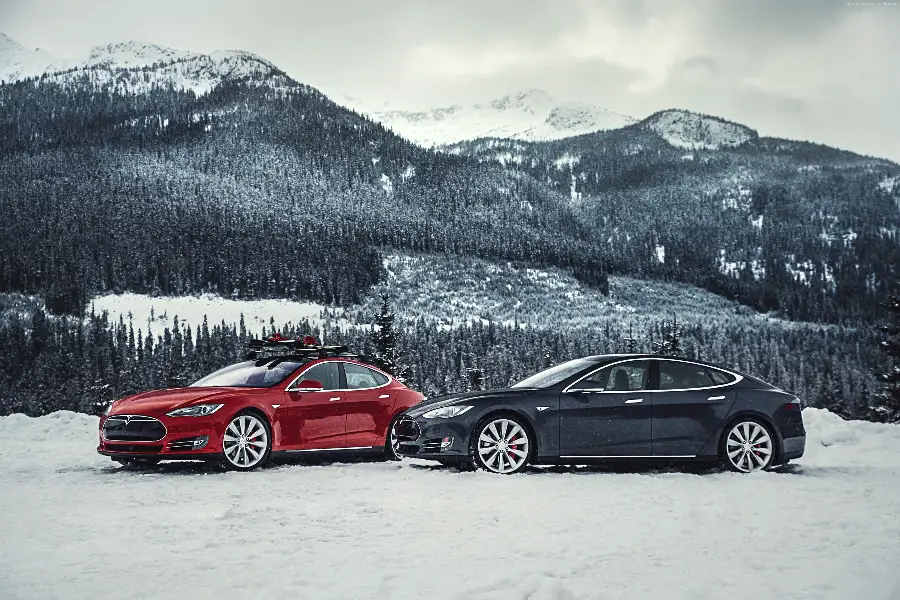
Alright, so we’ve established that temperature can indeed impact your EV’s range. But don’t let that put a chill on your electric dreams!
There are ways to mitigate these effects and keep your EV running smoothly, no matter the weather.
In this section, we’ll share some handy tips and tricks, from preconditioning your battery to managing your heating and cooling systems efficiently.
So, if you’re ready to take charge of your EV’s performance, read on!
Preconditioning the Battery
Preconditioning is a bit like warming up before a workout. It involves heating or cooling your EV’s battery to its optimal operating temperature before you start driving.
Many EVs offer this feature, which can be scheduled to coincide with your departure time.
By preconditioning the battery while your EV is still plugged in, you can reduce the energy drain on the battery once you hit the road.
This can help maintain your range, especially in extreme temperatures.
Efficient Use of Heating and Cooling Systems
Just as you might layer up in winter or seek shade in summer to reduce your reliance on home heating or cooling, similar principles apply to your EV.
Using seat heaters instead of the main heater, for instance, can keep you warm in winter without using as much energy.
Similarly, parking in the shade or using a sunshade can keep your car cool in summer, reducing the need for air conditioning.
Every little bit helps when it comes to preserving your EV’s range!
Battery Thermal Management Systems
Battery Thermal Management Systems (BTMS) are like the unsung heroes of your EV.
These systems work behind the scenes to keep your battery at its optimal operating temperature, helping it perform efficiently and last longer.
They do this by either heating or cooling the battery as needed. In cold weather, a BTMS might warm up the battery to improve its performance.
In hot weather, it might cool the battery to prevent overheating and degradation.
By maintaining the right temperature, a BTMS can help mitigate the effects of extreme temperatures on your EV’s range.
Does Temperature Affect Electric Vehicle Range FAQs
Got questions? We’ve got answers! In this section, we’re tackling some of the most frequently asked questions about temperature and EV range.
From understanding how much temperature can affect your EV’s range to tips for maximizing range in cold weather, we’ve got you covered.
So, if you’ve been scratching your head over these topics, read on for some enlightening insights!
Q: How much does temperature affect EV range?
A: The impact of temperature on EV range can vary based on several factors, including the specific temperature, the vehicle model, and how the vehicle is used.
However, studies have shown that in extreme temperatures, EV range can be significantly affected. For instance, the AAA found that at 20°F, an EV could lose up to 40% of its range when the heating system is in use.
On the other end of the spectrum, at 95°F, range loss could be as much as 17% when the air conditioning is running.
Q: Does temperature affect EV battery range?
A: Yes, the temperature can indeed affect the range of an EV’s battery. Both cold and hot temperatures can impact the efficiency of the chemical reactions inside the battery that generate electricity.
Cold temperatures can reduce battery capacity, leading to reduced range, while extreme heat can cause the battery to degrade faster, impacting its overall capacity and lifespan.
Q: How do you maximize EV range in cold weather?
A: There are several strategies to maximize your EV range in cold weather.
One is to precondition your battery while your EV is still plugged in, which can reduce the energy drain on the battery once you start driving.
Another is to use your heating system efficiently, for example, by using seat heaters instead of the main heater.
Finally, driving smoothly and steadily, avoiding high speeds, and minimizing cargo can also help maintain your range.
Q: What factors affect the range of an EV?
A: Several factors can affect the range of an EV. These include driving habits, terrain, weight, speed, and weather.
Aggressive driving, uphill terrain, heavy loads, high speeds, and extreme temperatures can all reduce your EV’s range.
On the other hand, smooth driving, flat terrain, lighter loads, moderate speeds, and mild temperatures can help maximize your range.
Does Temperature Impact EV Range? Conclusion
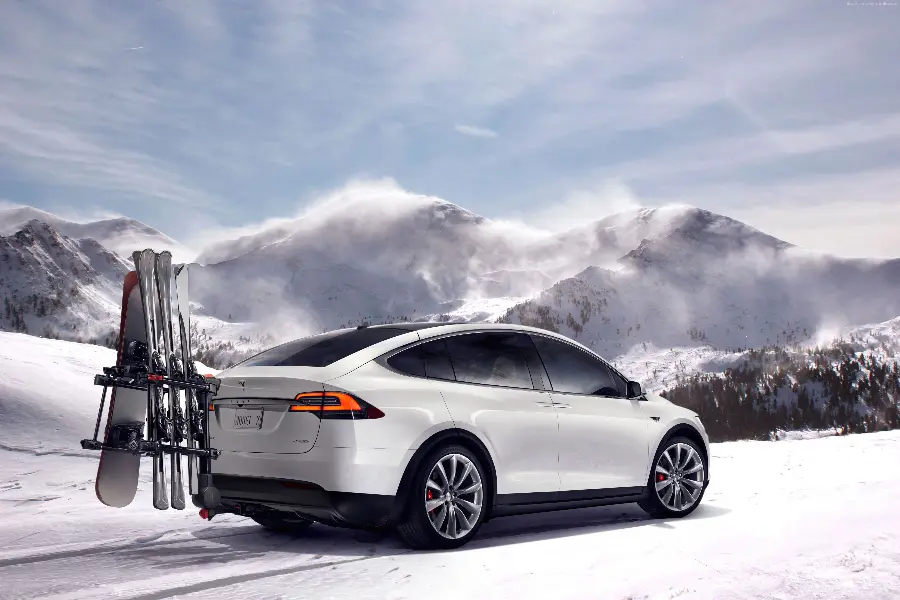
As we cruise towards the end of our journey exploring the question, ‘Does temperature impact EV range?’, it’s time to reflect on what we’ve learned.
From understanding the basics of EV range to the effects of both cold and hot temperatures, we’ve covered a lot of ground.
But don’t worry, we’ll recap the key points and look ahead to the future of EV technology in this concluding section. So, let’s wrap up this electrifying adventure together!
Recap of the Impacts of Temperature on EV Range
So, let’s circle back to our original question: Does temperature impact EV range? The answer, as we’ve discovered, is a resounding yes.
Both cold and hot temperatures can affect your EV’s range in different ways. Cold temperatures can increase the energy use of your heating system and reduce battery performance, leading to a decrease in range.
On the other hand, hot temperatures can increase the use of your air conditioning system and cause your battery to degrade faster, which can also impact your range.
But remember, there are ways to mitigate these effects, from preconditioning your battery to using your heating and cooling systems efficiently.
The Future of EV Technology and Improvements in Range
Looking ahead, the future of EV technology is incredibly exciting.
As more and more people make the switch to electric, manufacturers are continually innovating to improve EV range and performance.
This includes advancements in battery technology, more efficient heating and cooling systems, and improved battery thermal management systems.
While the temperature will likely always have some impact on EV range, these improvements can help minimize this impact and make EVs an even more practical and sustainable choice for transportation.
So, here’s to the future – a future that’s electric!


